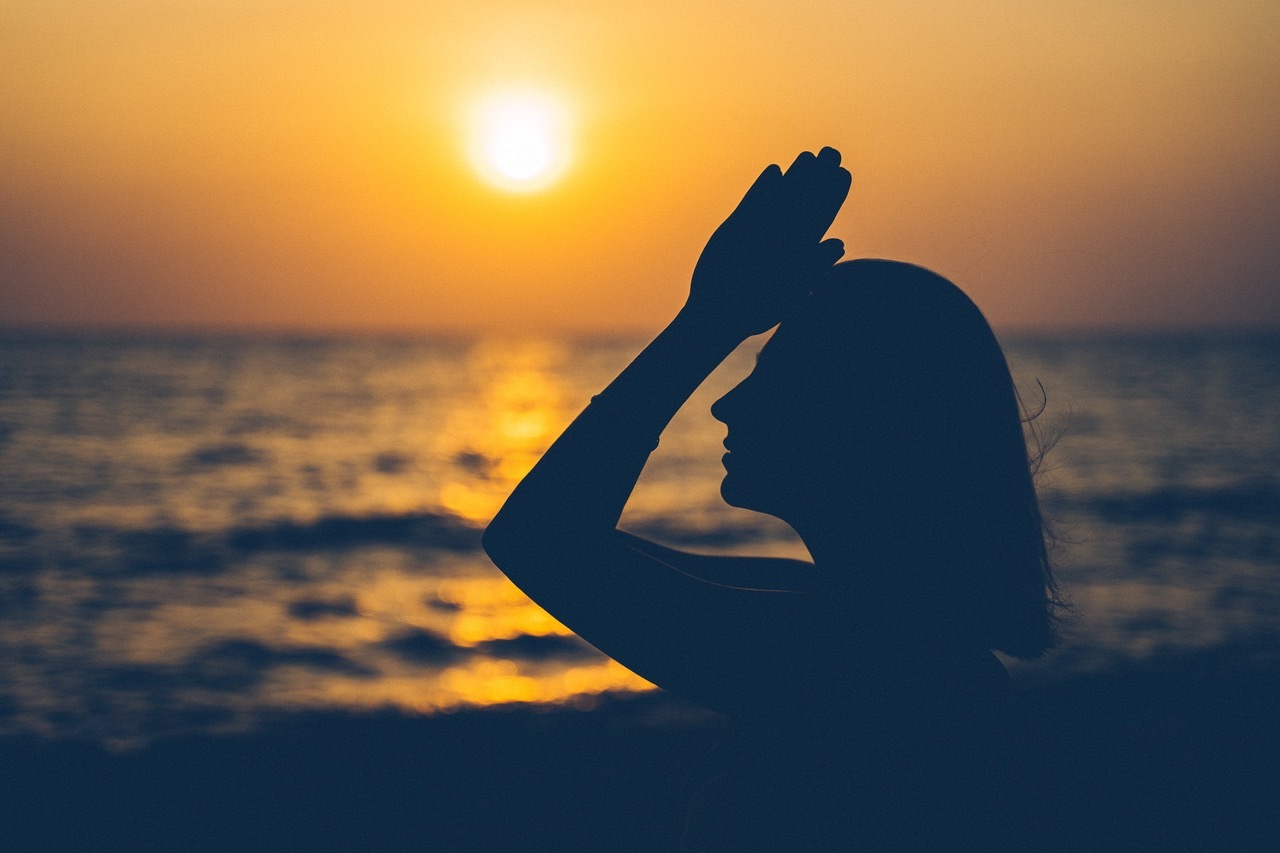Discussions over what spirituality is and how to be spiritual aren’t uncommon. Many people are interested in enriching their inner life, after all, and they want to talk about it with other like-minded people. However, the true meaning of spirituality could get lost in the noise of surface-level conversations. Thus, the term “spirituality” is often misunderstood, especially when employed in the context of religion.
The term ‘spirituality’ is done a disservice when conflated with the word ‘religion’. They are two different albeit related things: spiritualism can be a part of one’s religious faith, but religiosity and membership in a faith-based institution are not necessary to be spiritual.
So, when people think that the two are interchangeable, they run the risk of bringing their beliefs and biases about religion to discussions meant only to be about spirituality. Moreover, they could also box the term spirituality under religion and fail to recognize how it could be expressed outside of religious practice.
What, then, does spirituality look like when it isn’t boxed in by religious ideology? In this blog, Daftein answers that question, as well as shows you the different ways of expressing one’s spirituality so you can foster a deeper sense of meaning in your life.
Spirituality vs. Religion
If we want to properly discuss spirituality and what it means away from the context of religion, we’re first going to have to define the two terms and how they differ from each other. Fortunately, they are rather straightforward:
Spirituality: An individual practice. It concerns one’s personal sense of peace, purpose, and connection to others and the world at large. While loose groups can form around similar spiritual notions, religious membership isn’t required to practice one’s spirituality.
Religion: A specific set of formalised, external belief systems and practices that a collective subscribes to. These systems govern the relationships and activities of a community and between individuals. Spirituality can play a part to practicing a religion, but isn’t a necessity.
While the two terms may overlap for specific situations, they are distinguishable from one another for the most part. You can identify as being and combination of the two or exclusively practicing either.
Spiritual but not Religious
Though we’ve mentioned that you could practice your spirituality while in a religious group, in this blog, we’re going to focus on the spirituality you could develop outside religion. This means that you don’t regard organised religion as the most valuable means of progressing with your spiritual growth. Instead, we emphasise the wellbeing of your interior life and personal faith.
With all the focus on the personal or self, does it make spirituality-outside-of-religion an egotistical or narcissistic practice? No, it doesn’t. In fact, one of the goals of cultivating one’s spirituality is to overcome egotistical and narcissistic urges. A deep spirituality leads you to find your ‘true self’. Through it, you can form real and meaningful connections with people and the world without pretenses obscuring the value of our relationships.
Why Practice Spirituality?
As the saying goes, life is like a wheel; it’s got its ups and downs, the good times and the bad. No matter how much control you try to exert on your life, it’s inevitable that some things would be impossible to rein in or predict. Spirituality offers a way to come to terms with these limitations and find comfort and peace with life by grounding one’s perspective:
Discern the ‘Bigger Picture’. A deeper connection with your inner life can allow you to see beyond the minutiae of everyday life and recognise your life has greater value and meaning in the greater scheme of the universe—and that you have the power to make it what it is.
Release from material dependence. Developing one’s spirituality shifts your perspective so you become less dependent on material possessions for satisfaction and a sense of identity. Rather, you enrich your inner life and take a step further into realizing your ‘true self’.
Heal and affirm the ego. By cultivating a healthy sense of self-worth and believing in your capacity to give and receive love, you become less constrained by the ego’s defenses and your heart opens up to experience genuine connections with other people and the world.
Cope with change and uncertainty. A healthy spirituality toughens your psychological constitution, allowing you to weather difficult times with equanimity and grace. The ability to cope and adjust to the situation will let you see things through on the other side.
The practice of one’s spirituality is often done alongside activities like yoga, which focuses on the safe release of emotion and stress relief.
Expressing Your Spirituality
Due to its personal nature, spirituality is intentionally a broad concept that can accommodate numerous perspectives and practices. If you want to express your spirituality, then you’ll have to determine what life means to you and how you want to engage with a concept much bigger than just yourself. Expressing yourself could mean joining a religion like Catholicism, Judaism, Hinduism, etc., or participating in secular activities like environmentalism and social action.
Here are some simple ways you can ease into expressing your spirituality:
Organise your relationship map. A simple exercise that’s meant to show you how you relate with the world and the people you interact with. Establishing where they stand in relation to you early on will help you determine if your connection with them is where you need to be. If you aren’t there yet or feel like the definition of your connection is still intransigent, don’t worry! This is an initial map. It’s expected that things will evolve as you progress in your spiritual journey.
Identify what you truly value. More than a list of materialistic goals, determining what’s truly valuable to you goes a long way in setting your goals or directing the path you take as you grow spiritually. So, think about how you want to be in your ideal future: what changes you’d like to see manifested both in you (your authentic self) and around you. Think about the values and principles you want to live by.
Renew your connection with nature. Technology has made many things easier for us—for better and for worse. We are in real danger of becoming so absorbed in the little worlds of our making that we forget to restore our connection to the natural world every once in a while. So, if you want to express your spirituality, then one of the best and easiest ways is to cultivate a habit of getting out of your head for a while: take a walk in the park, sit outside in a sunny spot and listen to the sounds of nature, go fly fishing or take up a water sport, etc.
Try basic meditation or prayer. Spiritual growth also depends on the harmony between your body and mind. Reestablish and strengthen the connection between your internal and external self by meditating for a couple of minutes or more every day. You can also be mindful of your actions as you go about your daily routine. Praying to a higher being(s) is also an option if you are particularly religious. Either way, these disciplines are especially helpful when you want to be more ‘present’ in what is rather than get stuck in the past (which is already set in stone) or the future (outcomes that you can’t fully predict or control).
Save some space for rituals. Personal rituals can be anything as simple as setting aside an hour regularly to yourself to do an activity that grounds you in the present: reading a book or listening to a podcast about developing your spirituality, lighting a candle or incense at the end of the day and recounting the things you’re thankful for, and the like. You can also take cues from faith-based institutions. Their rituals are most likely steeped in years of tradition and might get too complex or elaborate, however. Our advice is to try and find the very basic meaning of the ritual (learn about its origins and why people began to practice it in the first place) and base your own, simpler rituals on them.
These are just broad examples of what you can do. With time and practice, you’ll be able to develop a spiritual practice that’s unique to you!
Tips for Practicing Spirituality
Since spiritual practice is deeply personal, you won’t find a definitive rulebook on what to do and how to do it. The answer, as we’ve mentioned several times prior and in different ways, lies within you. Daftein can, however, give you some tips to guide your discernment journey:
Make it meaningful to you. Developing your spirituality means looking deep within yourself and learning how you want to engage with the world and with others on your terms. This means that if someone’s spirituality manifests in one way but isn’t for you, then you respect their agency but tread your own path with an open mind. Remember that personal meaning and practice are what differentiates spirituality from the collectivised activities, rituals, and beliefs of organised religion.
Practice purposeful communication. While spirituality is an ongoing personal project, it doesn’t mean that you have to take everything on by yourself. That way only leads to becoming overwhelmed by the complexity of your potential. So, don’t be afraid to approach someone you can trust and share your thoughts. There is value in the lived experiences of others and you’ll gain a lot of insight by listening to them. By opening your ears, mind, and heart to what your trusted confidants have to share, you’ll be able to better organise your thoughts and discern what spirituality is for you.
Be kind to yourself. Finding meaning in your life through spirituality can take time. If you haven’t figured out what you’re looking for, then don’t let impatience eat you up. Be kind to yourself and keep in mind that your spirituality and what you learn about yourself is a lifelong journey; you don’t (and shouldn’t) expect answers right away, or assume that an answer will always hold true to your constantly evolving sense of self.
Develop Your Spiritual Practice
You don’t have to be a religious person or be part of an organised religion to make peace with your interior self and grow as a human being. Practicing spirituality in a secular capacity based on your personal principles and beliefs is entirely possible with the help of wise mentors and experienced advisors. When you need valuable insights on your journey towards finding your true self, get in touch with Daftein. Our coaches offer several ways to develop your spirituality and meaningfully connect with the world.








